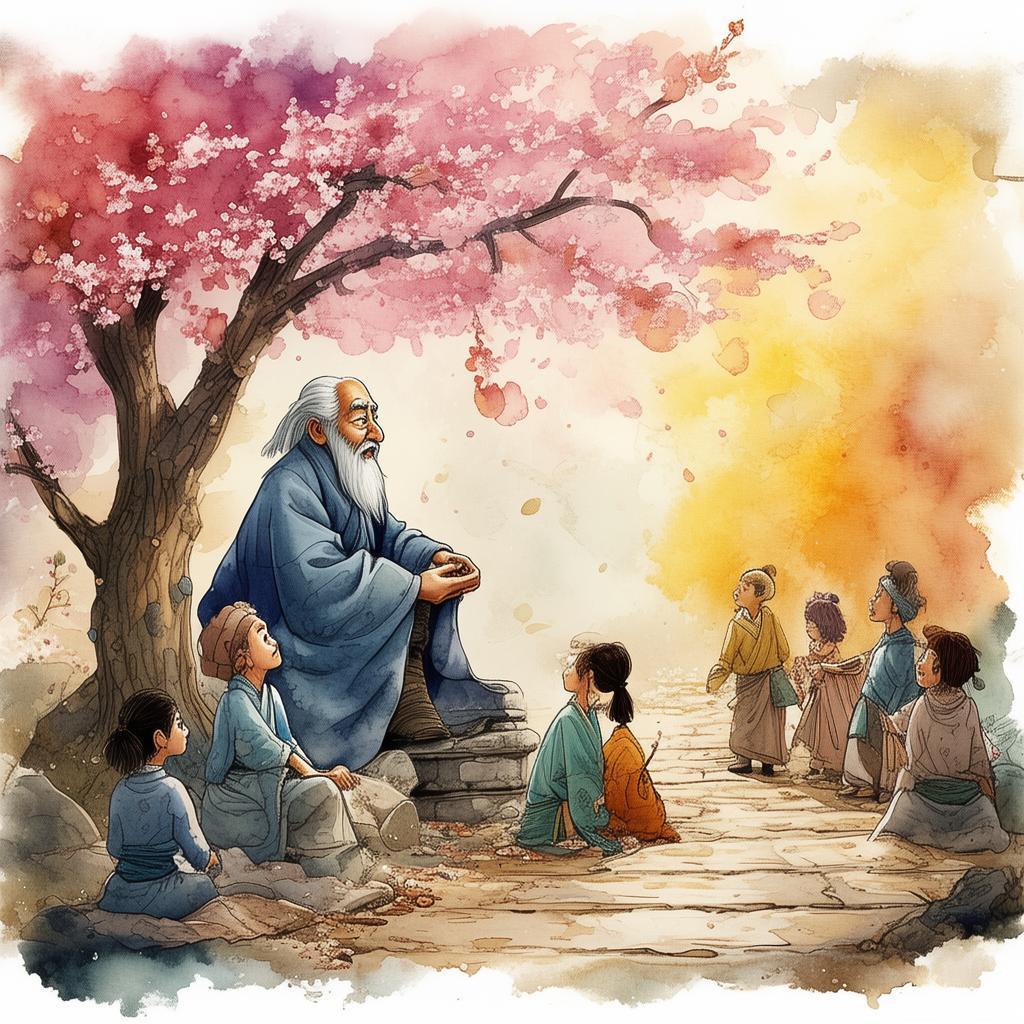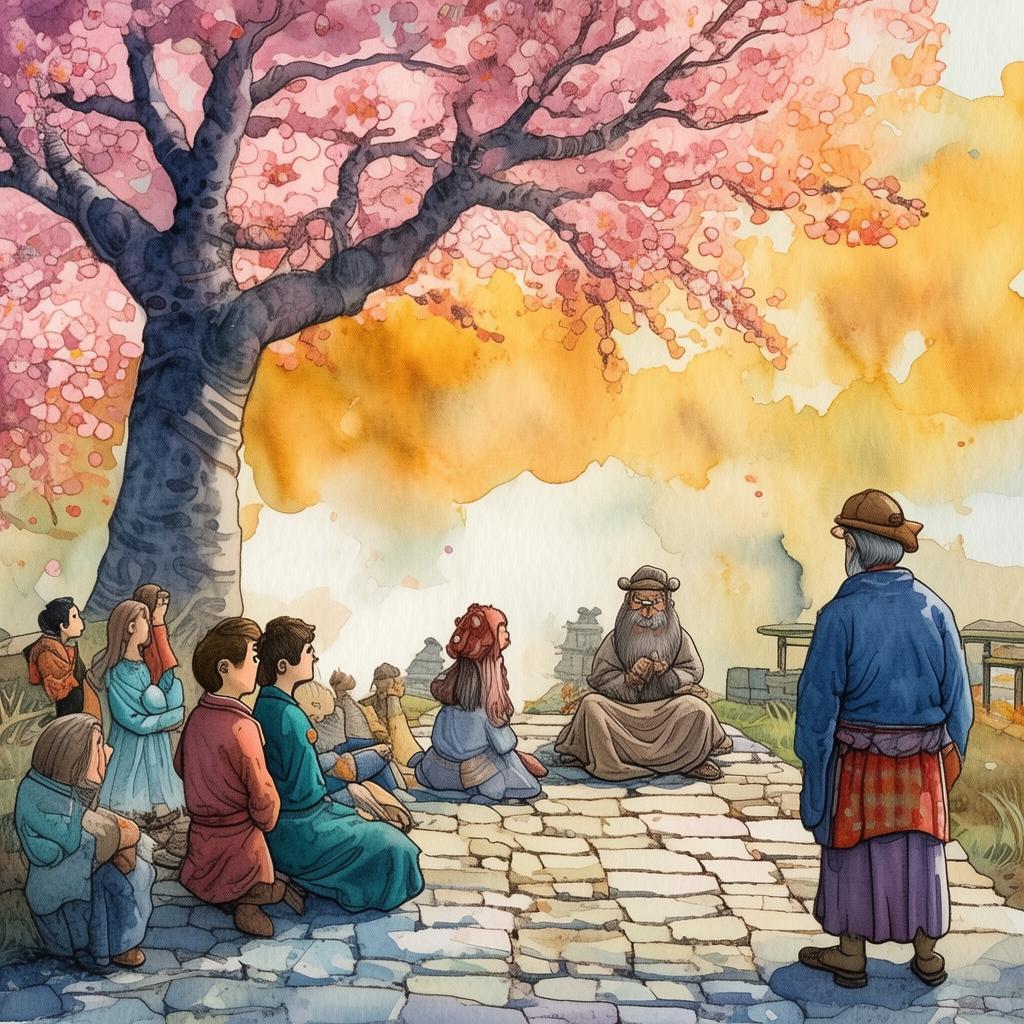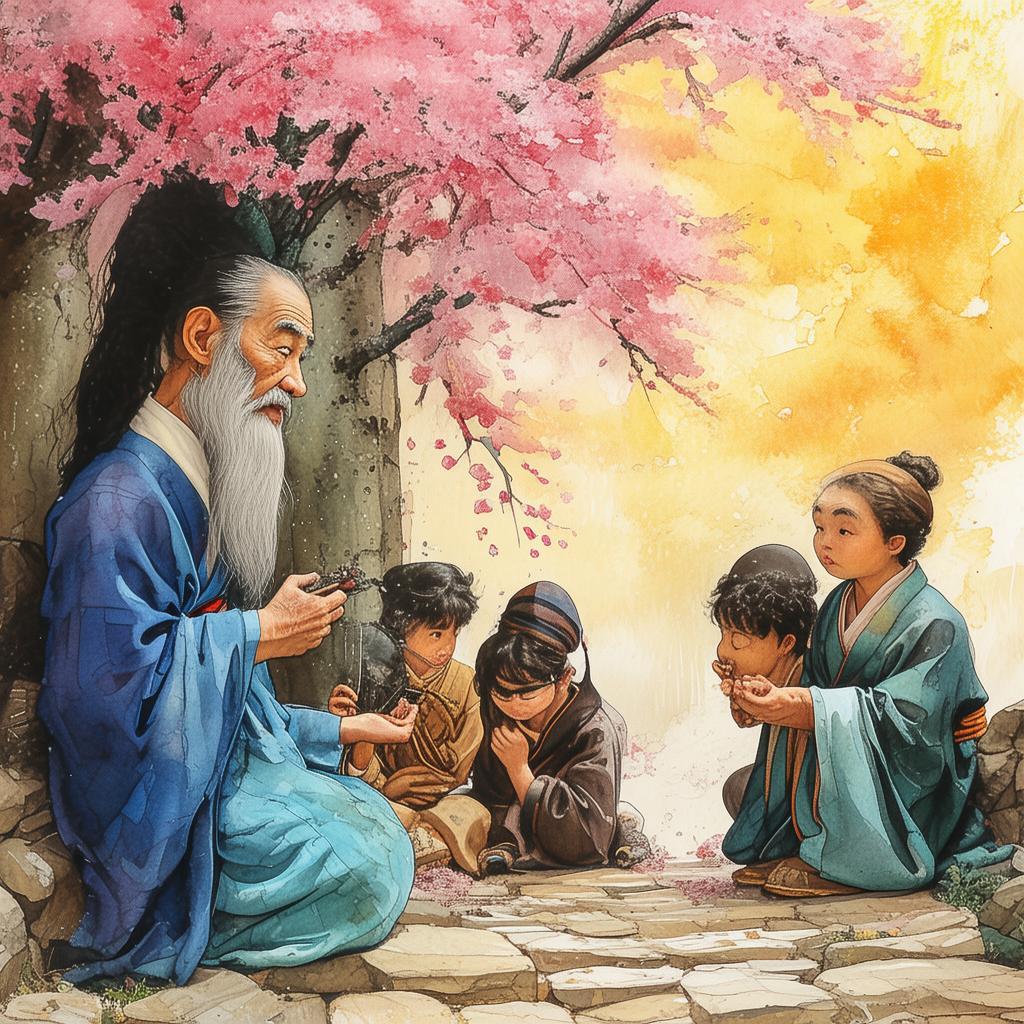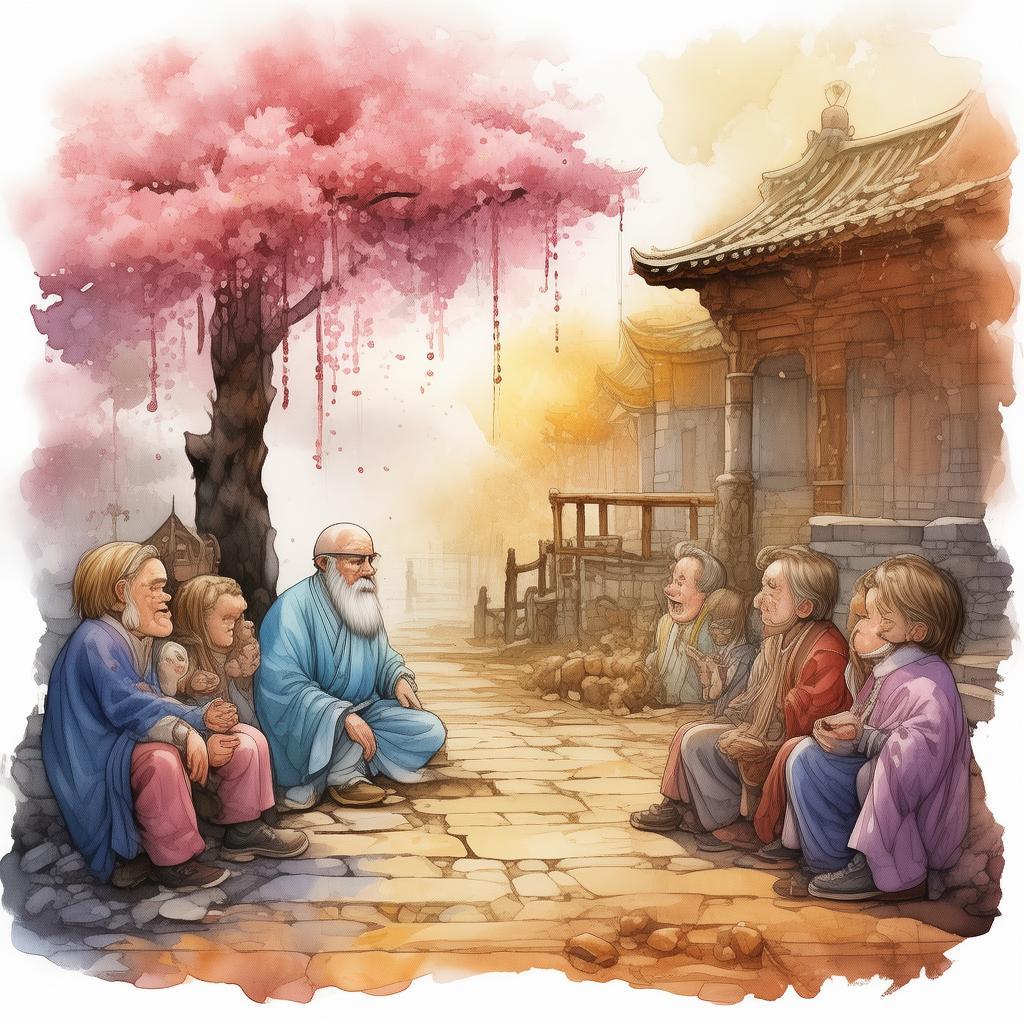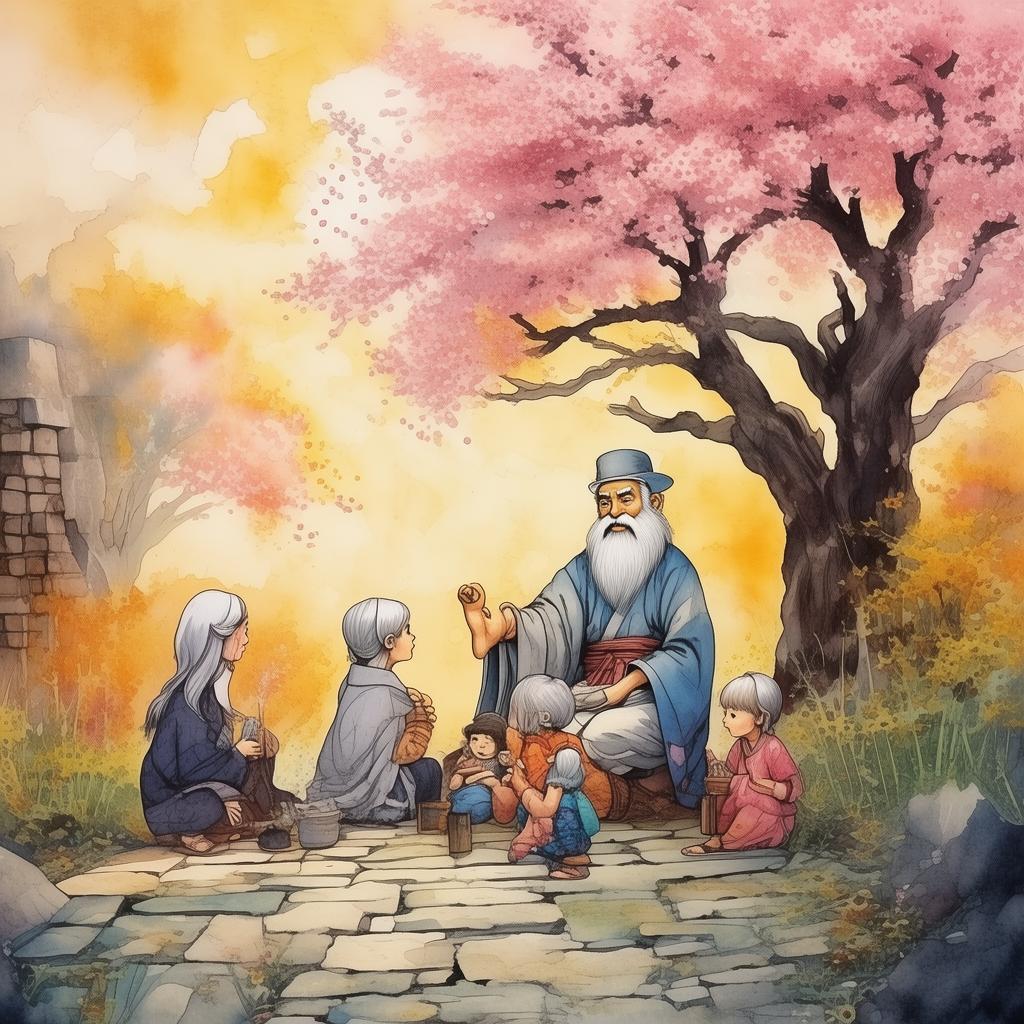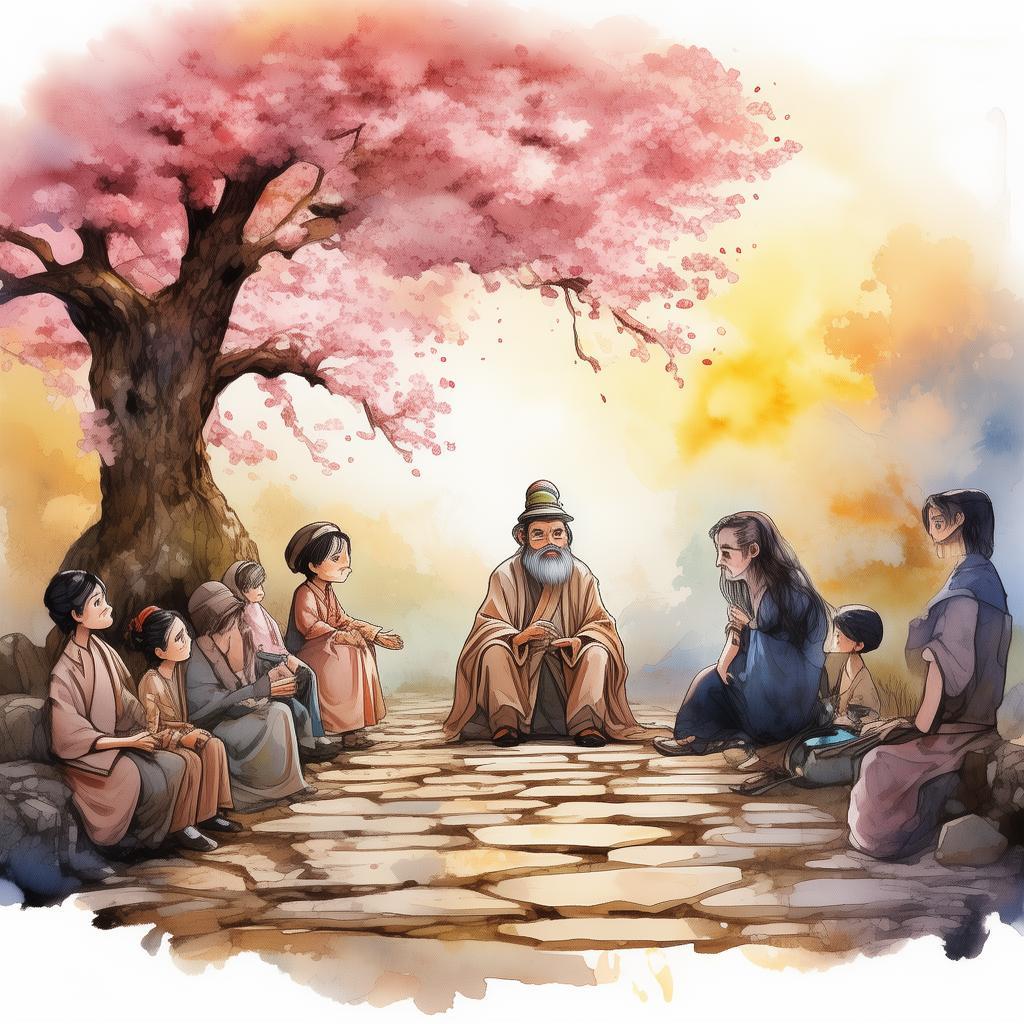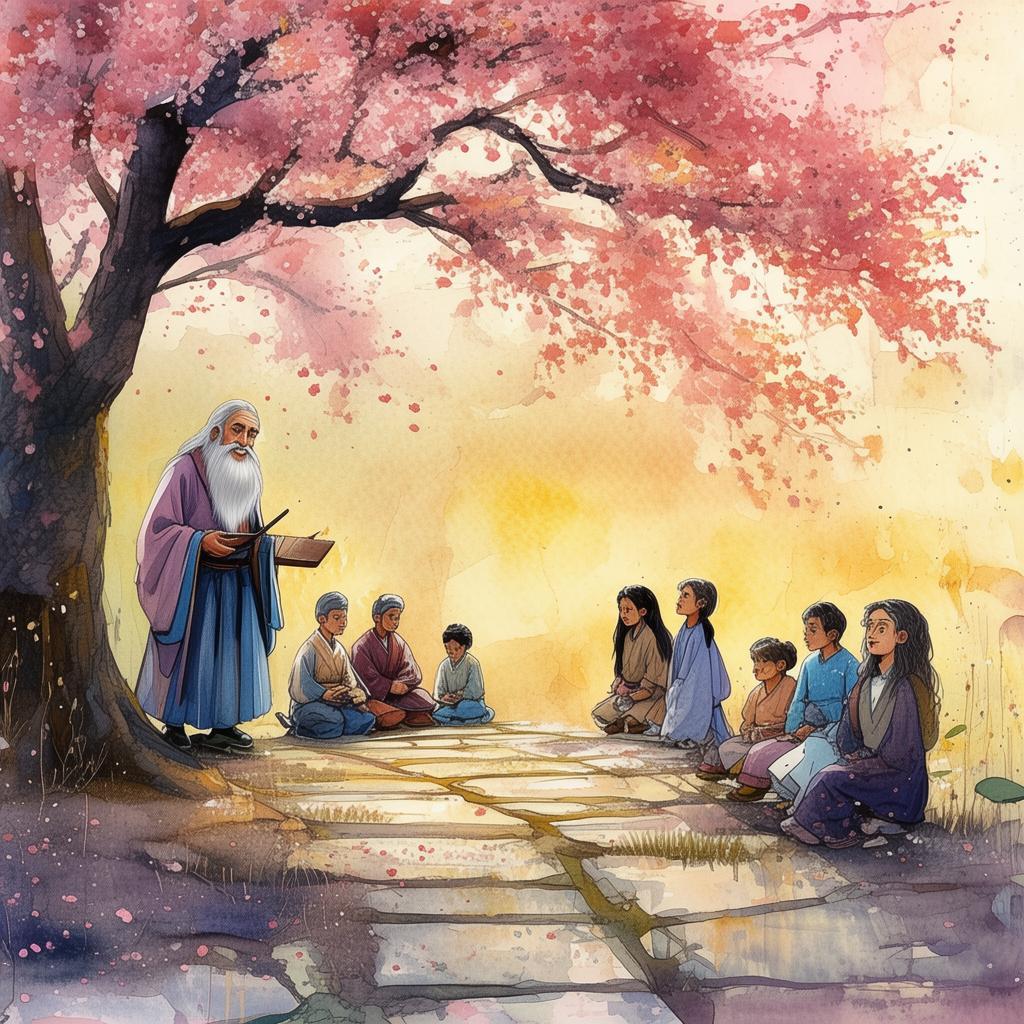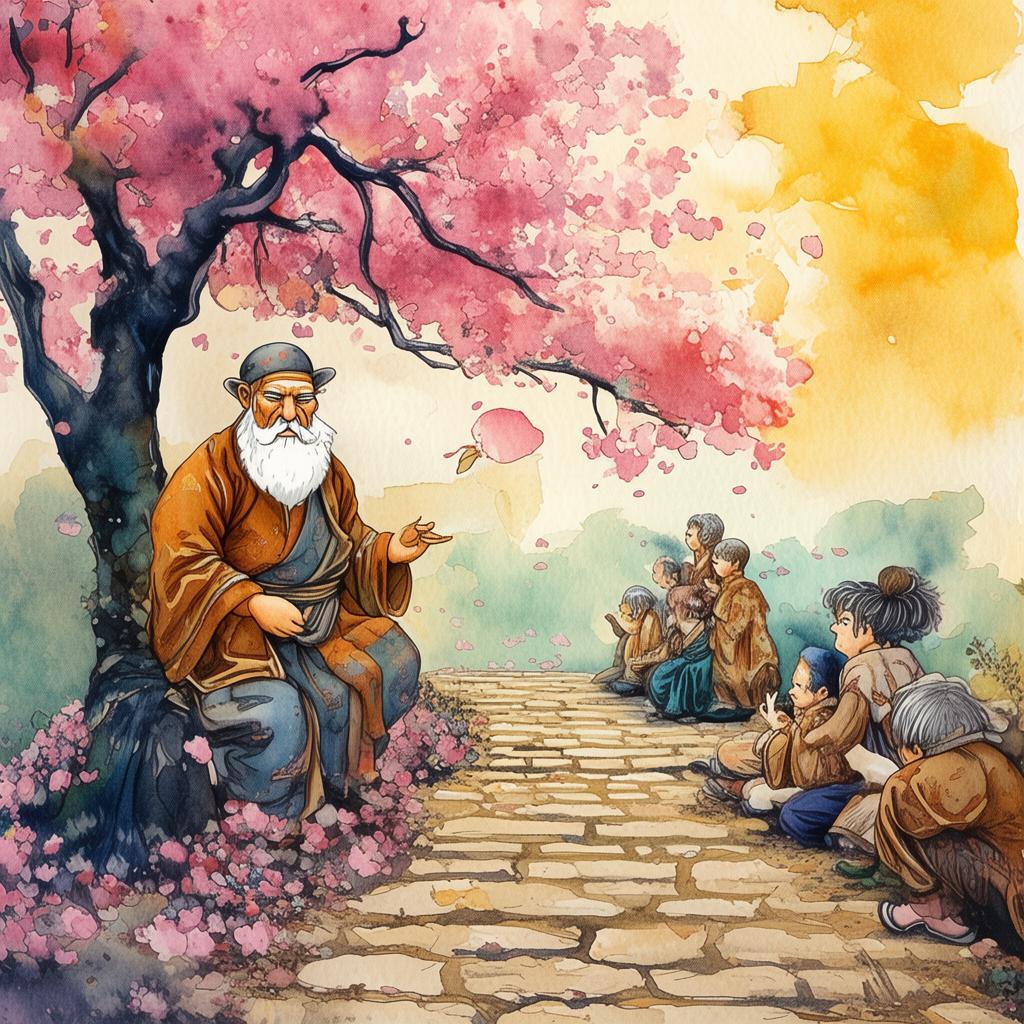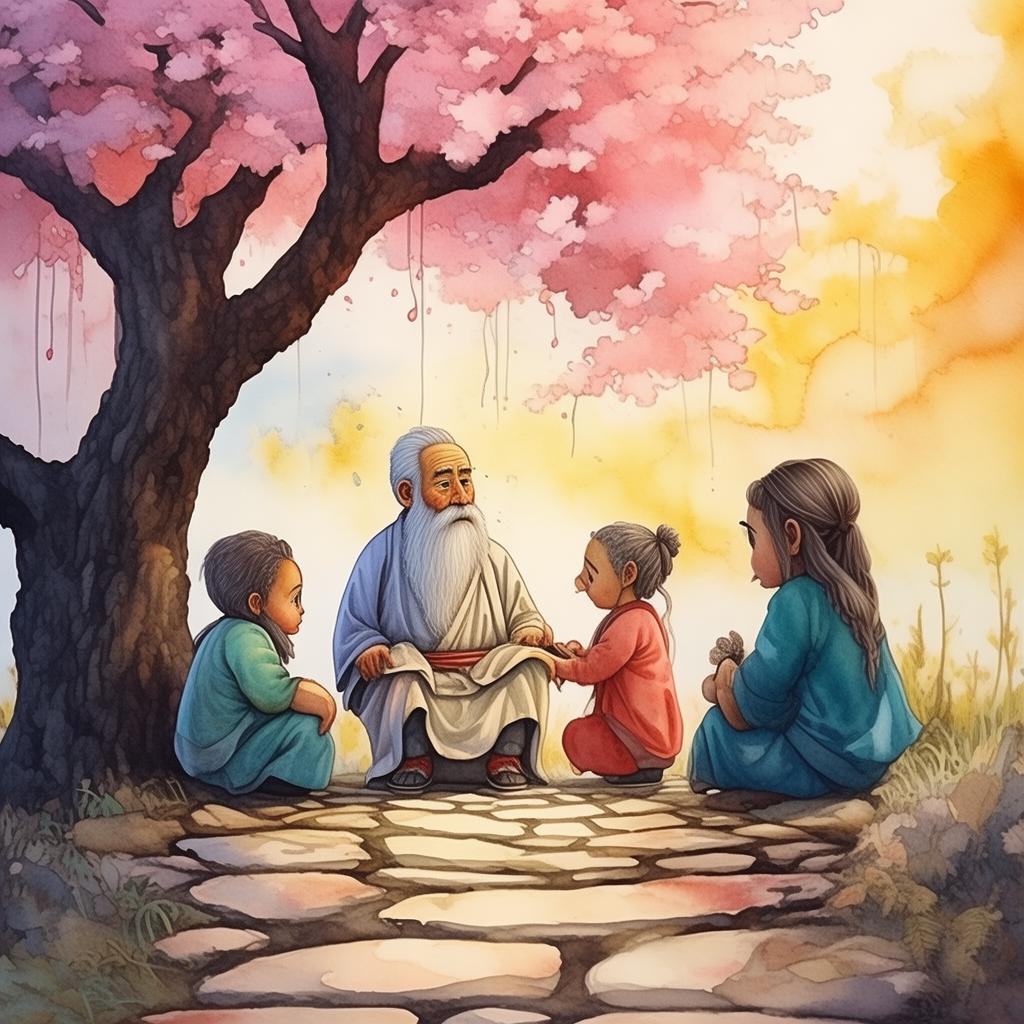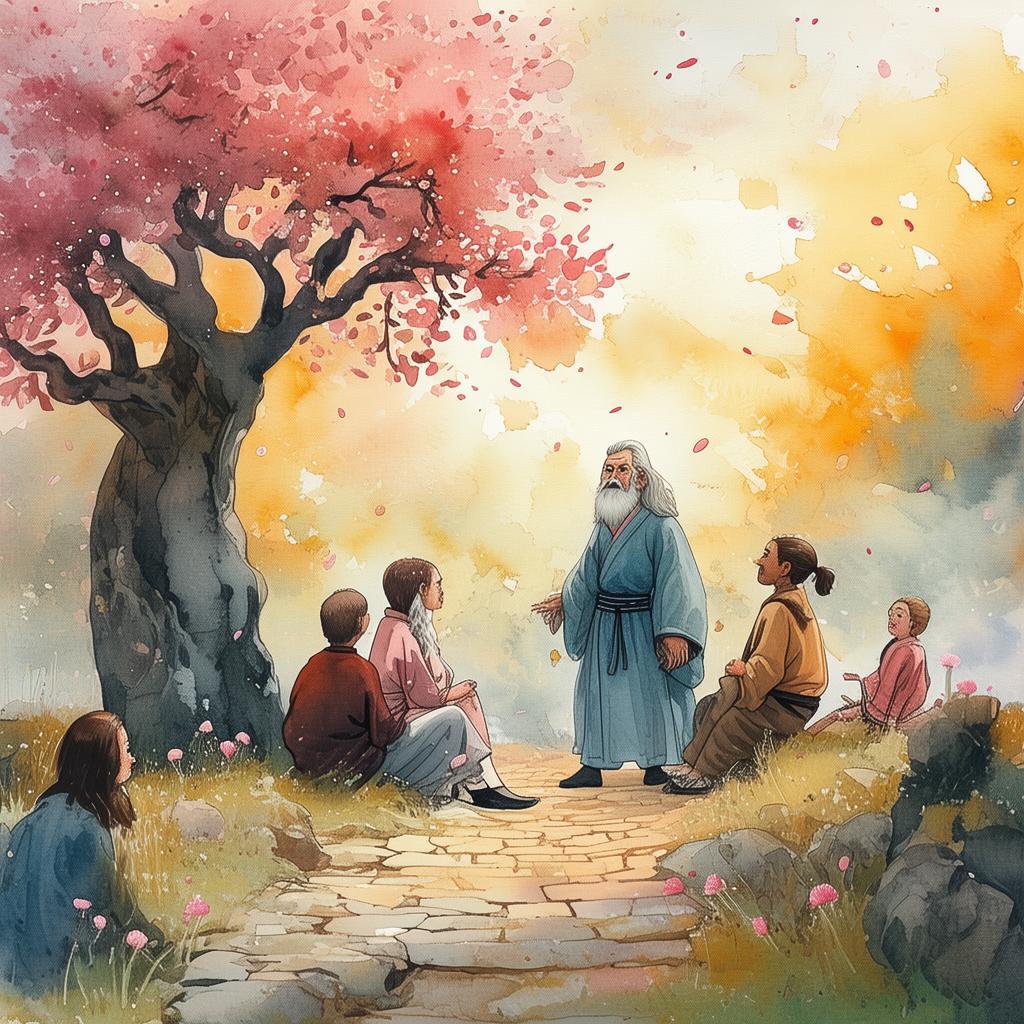The Hermit Chef's Test of Patience
In the remote mountains of a quaint village, there was an old hermit chef known far and wide for his unparalleled culinary skills. His name was Ming, and he was a master of the ancient art of Chinese cuisine. Ming had secluded himself from the bustling world, choosing instead to live in a small, modest cabin at the edge of a serene forest. His only companions were the herbs, spices, and the wild ingredients that the forest provided.
One day, a traveler stumbled upon Ming's cabin. The traveler had heard tales of the hermit chef's culinary prowess and had come seeking his wisdom. Ming, intrigued by the traveler's quest, agreed to teach him a thing or two about the art of cooking. But Ming had a condition; the traveler must prove his worth by enduring a test of patience.
Ming explained that in the world of culinary arts, patience is as essential as skill. He told the traveler of a famous Chinese proverb, "The slow-cooked soup is the most delicious," which he believed encapsulated the essence of patience in cooking. The traveler, determined to learn, agreed to the challenge.
Ming took the traveler to his garden, where he showed him rows of herbs and spices. "These are the ingredients for your first dish," he said. "But you must wait until the moon is full before you can use them."
The traveler, understanding the importance of the chef's instruction, waited. Days turned into weeks, and the traveler grew restless. He wanted to rush through the process, eager to see the fruits of his labor. But Ming would not budge, reminding him of the proverb.
As the full moon approached, the traveler could no longer contain his impatience. He decided to cook the dish without waiting for the moon to rise. He chopped the herbs roughly, mixed the spices hastily, and placed the ingredients in a pot over a blazing fire.
The dish was ready before the moon even began to rise. But as the traveler took a bite, he was met with a lackluster taste. The flavors were not as harmonious as they should have been, and the dish lacked the depth and complexity that Ming's teachings promised.
Ming watched the traveler's expression of disappointment. "Patience is the key to a dish's soul," he said. "When you rush, the flavors do not have time to meld together. The essence of the ingredients is lost."
The traveler, humbled by his failure, resolved to wait for the moon to rise before cooking again. As the silver moon cast its light upon the garden, the traveler followed Ming's instructions to the letter. He carefully chopped the herbs, blending them with the spices in a precise rhythm. He simmered the pot on a gentle flame, allowing the flavors to develop and intertwine.
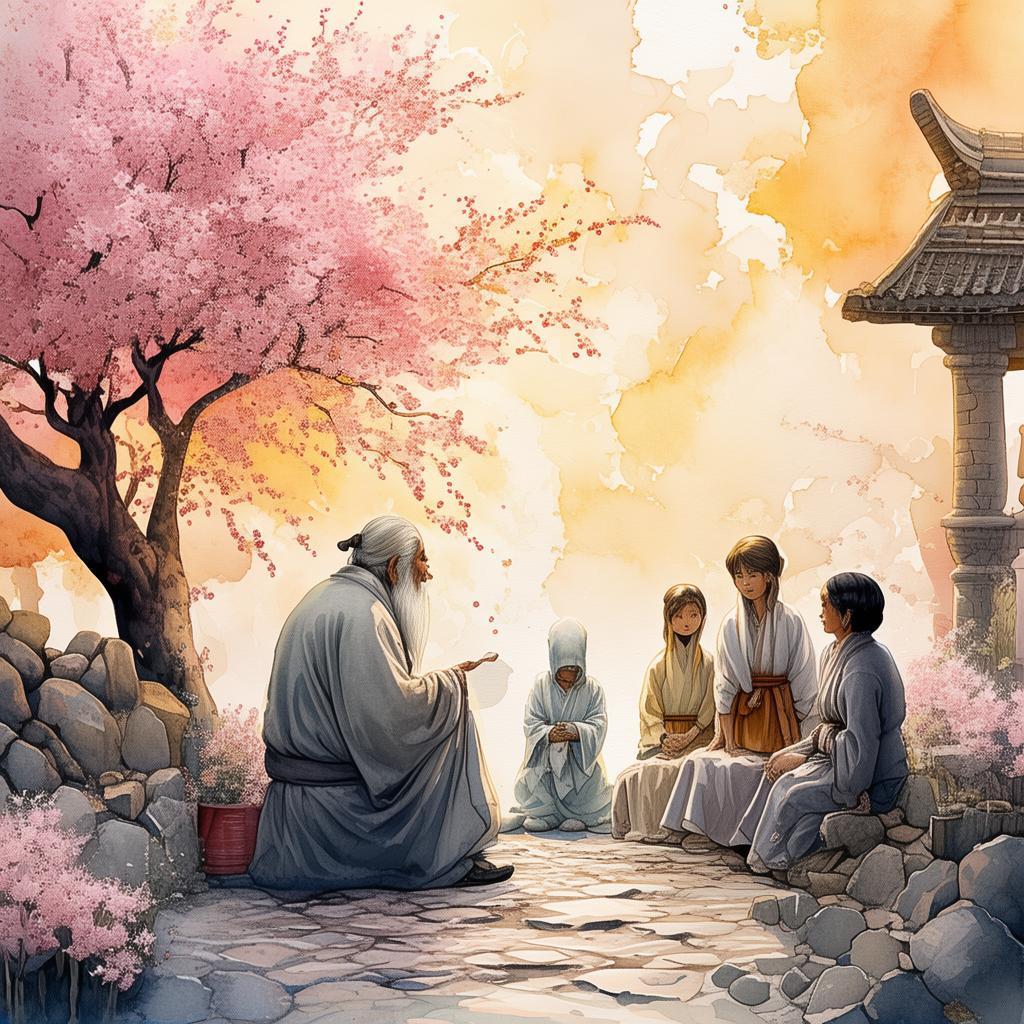
When the dish was finally ready, the traveler took a bite. The flavors were rich and complex, the aroma filling the air like a melody. The traveler realized that Ming had been right all along. The slow-cooked soup was indeed the most delicious.
Ming smiled, pleased with the traveler's newfound understanding. "Patience is not just about waiting, but about allowing the process to unfold naturally. It is in the waiting that the true essence of the dish is revealed."
The traveler, now a student of patience, left Ming's cabin with a newfound respect for the art of cooking. He returned to his own village, sharing Ming's teachings with his fellow villagers. The community began to embrace the value of patience, not only in cooking but in life itself.
The hermit chef's wisdom spread far and wide, and the traveler's story became a legend. It was said that the slow-cooked soup was the most delicious, not just because of the flavors, but because it was a testament to the power of patience.
And so, the hermit chef's test of patience not only taught the traveler the art of cooking but also became a symbol of the profound connection between patience and the essence of life.
✨ Original Statement ✨
All articles published on this website (including but not limited to text, images, videos, and other content) are original or authorized for reposting and are protected by relevant laws. Without the explicit written permission of this website, no individual or organization may copy, modify, repost, or use the content for commercial purposes.
If you need to quote or cooperate, please contact this site for authorization. We reserve the right to pursue legal responsibility for any unauthorized use.
Hereby declared.
